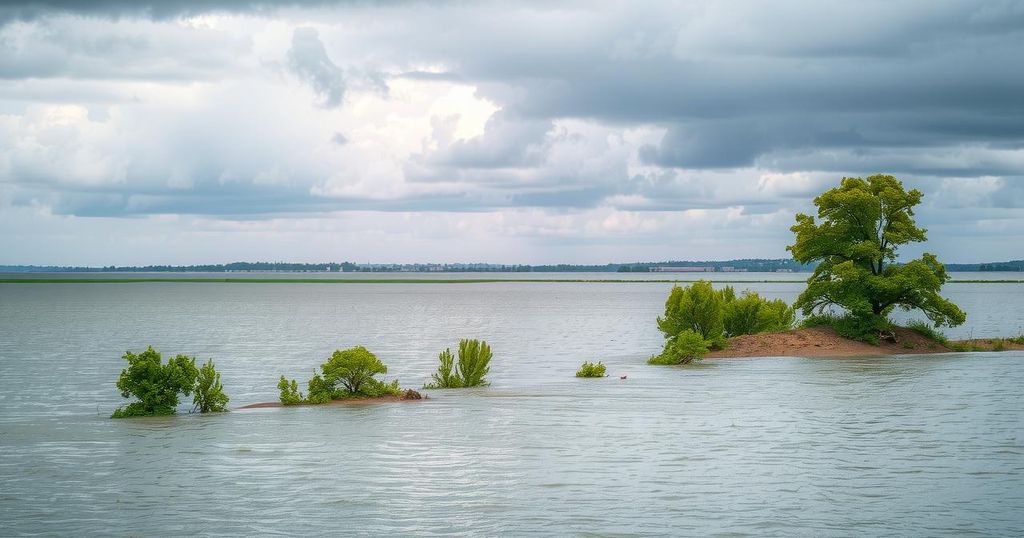Severe Flooding Crisis in the Sahel and Lake Chad Region: Urgent Assistance Needed

The Sahel and Lake Chad region is experiencing severe humanitarian crises due to flooding, conflict, and climate change. Over 239,000 individuals have been affected, with urgent needs for food and shelter assistance. Current funding for relief efforts is insufficient, highlighting the need for increased international support.
The Sahel and Lake Chad region is facing a critical humanitarian crisis exacerbated by conflict, displacement, and climate change, according to Hassane Hamadou, NRC’s Central and West Africa regional director. The immediate need is to provide essential support, including shelter, food, and hygiene supplies, while long-term improvements in infrastructure are necessary to enhance resilience against future disasters. Local governments must be involved in these solutions for effective implementation.
Countries such as Cameroon and Niger are grappling with the dual challenges of ongoing conflict and an increasing frequency of severe floods, which have devastating humanitarian impacts. These floods have decimated agricultural land, essential for local economies, heightening food insecurity for communities already in distress. Furthermore, the floods have disrupted education, forcing school closures and utilizing school buildings as relief shelters for those affected.
Modu, a flood survivor in Maiduguri, Nigeria, expressed the dire circumstances: “We lost the majority of our livelihood in the water, and the speed of the flow didn’t allow us to take any significant property with us.” He added that he is aiding other victims, emphasizing their helplessness as they watch their homes succumb to flooding.
In Mali, the lean season has intensified the famine risk, particularly impacting families reliant on subsistence agriculture and pastoralism. These families have lost everything due to the floods, underscoring the urgent need for immediate assistance to mitigate further loss of livelihoods.
Humanitarian organizations and local actors are tirelessly providing temporary relief amid dwindling resources. However, as of mid-2024, the Humanitarian Response Plan for Sahel was only 25 percent funded, necessitating increased international support for both immediate disaster response and long-term recovery initiatives that focus on disaster risk reduction and preparedness.
Hassane Hamadou stated, “These severe floods are a stark reminder of the Sahel and Lake Chad region’s vulnerability to climate change.” He emphasized that communities facing these challenges cannot manage alone and require substantial global support.
As of late August, floods have affected over 239,000 people, displacing at least 50,000 in Nigeria and a total of more than 2.3 million individuals across West and Central Africa. Tragically, 465 lives were lost, and 1,747 people were injured in the recent flooding. Additionally, approximately 354,000 hectares of agricultural land have been impacted, further threatening food production in a region already struggling with agricultural viability.
The article outlines the severe humanitarian implications of flooding in the Sahel and Lake Chad region, an area already weakened by conflict and climate change. It highlights the urgent needs of affected communities, their vulnerabilities, and the essential support required, emphasizing the necessity for both immediate relief and long-term infrastructural improvements. The statistics derived from leading humanitarian organizations demonstrate the scale of the crisis, underscoring the necessity for increased funding and coordination among local and international actors.
The ongoing floods in the Sahel and Lake Chad region reflect a complex crisis aggravated by climate change and existing vulnerabilities from conflict and displacement. Immediate support is crucial for those affected, while foundational improvements are needed to enhance resilience against future disasters. With international funding falling short, calls are being made for urgent assistance to safeguard livelihoods and prevent further humanitarian crises in the region.
Original Source: www.nrc.no






